The Nation has devoted a substantial chunk of their new issue, including a post-apocalyptically gloomy cover, to the subject of the most revered and loathed retail behemoth on the planet. The issue, "Amazon and the Conquest of Publishing," offers three long essays on Jeff Bezos's company's origins, controversial labor practices, tax-evasion efforts, data mining tactics, and its conflict-of-interest-y slouching towards publishing its own titles. (Sidebar: Amazon quietly bought Avalon Books, an imprint specializing in romances and mysteries, this week.)
The best and most comprehensive of the essays is Steve Wasserman's "The Amazon Effect." Wasserman, a former editor of the Los Angeles Times Book Review (which folded its print edition in 2008), paints a startlingly dystopian picture of Amazon as a company which, like its social networking counterparts, seems to harbor a sinister messianic ambition for itself, a desire to braid itself into our neural pathways.
From street level, they seem to be succeeding. Amazon has always seemed to me less a company than an idea. As Wasserman notes, it has no physical space (at least none that it pays fair taxes on). No one walks into an Amazon store; there are no Amazon greeters. And news that the company would like to replace its human workers, ostensibly the ones who saran-wrap your paperbacks to pieces of cardboard, with robots, hardly surprises, even if it is speeding us towards a vision of the future that would have made Aldous Huxley give us a withering look.
And it seems as though Amazon is banking on the fact that, like it's social network counterparts, it has become an idea, an ingrained feeling, a Pavlovian reflex—a verb. "To Amazon," in my working definition, might refer to "the immediate silent flush of gratification felt upon purchasing a dozen books one has been meaning to read with only a few clicks of a mouse, some of the books hard-to-find novels at scandalous mark-downs."
My sensitive information is saved on the site; I click hectically through to checkout, not the least bit anxious that Amazon has this information, maybe even a bit annoyed to be reminded it does, because a kind of anticipatory saliva has already started accumulating in a part of my brain I didn't know existed before Amazon. Finally, the words "free shipping" mitigate any subsequent feelings of buyer's remorse I might feel as the confirmation emails start cluttering my inbox. My wallet has not moved from my pocket. I have not moved from my chair. Twelve books are on their way to me, and nevermind that it might realistically take me several years to finish them all (in between reading the other stacks of books I ordered last month, and the month before, etc.). The shipping was free. I win.
Understandably, Amazon has its evangelizers, people like Slate's Farhad Manjoo, who argued several months ago that Amazon is "the only thing saving" literary culture, because the company has increased the number of books people buy, which (fishily) leads Manjoo to wish death on public spaces that encourage the buying of said books, a.k.a. independent bookstores. (This seems especially fishy given that said journalist writes for said website which, he admits, is in business with said online retailing behemoth.)
You might recall that this is the same article in which novelist Richard Russo is taken to task for a New York Times op-ed in which he pleaded the case for independent bookstores, the same Richard Russo who spoke at BEA this week, urging publishers to "find a spine" against the Amazonian bully.
But Manjoo is right: Amazon is, in many ways, the ideal friend and accomplice to young literary persons of the Great Recession era. The company appeals seductively to our general poverty, agoraphobia, sense of entitlement, and desire for immediate gratification. And with e-books, which, unlike toaster ovens, can be downloaded to your Amazon Kindle™ instantaneously (in a proprietary format locked to other e-readers), you don't even have to get up and run an illegible squiggle representing your signature™ across the UPS™ guy's Delivery Information Acquisition Device (DIAD)™.
A number of us who return again and again to Amazon aren't even lazy or agoraphobic; we're just broke. We go to our independent bookstores to browse and read on the big "poofy" (Manjoo) couches, buy a coffee, engage the sales attendants in English major banter: a combination of activities which we like to think of as "showing our support." And then we go home and buy a dozen books in a few clicks from the enemy.
What to do, Independent Bookstore, when my heart is your husband, but, as Bezos knows, my wallet's a slut?
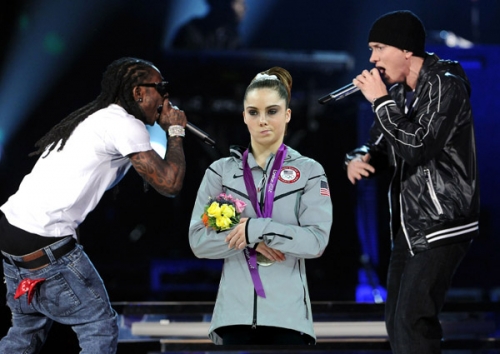




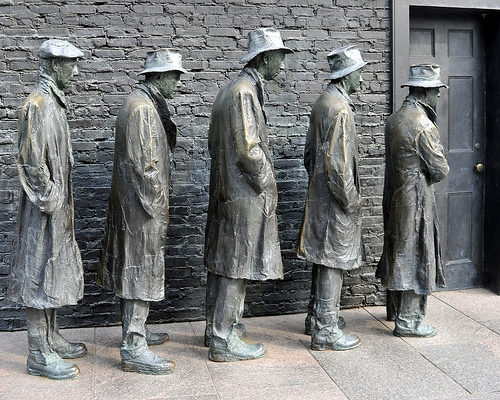


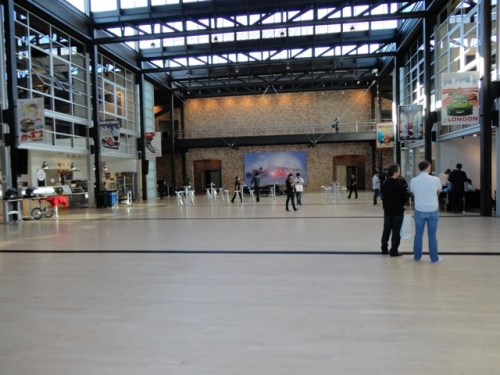

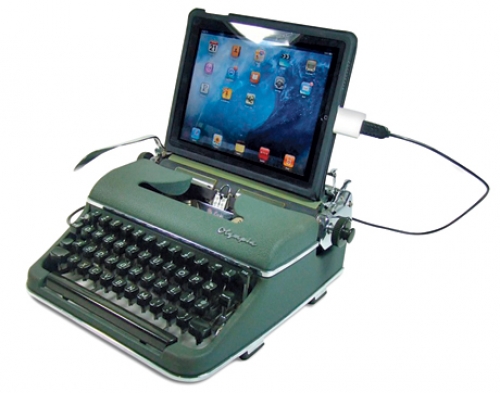
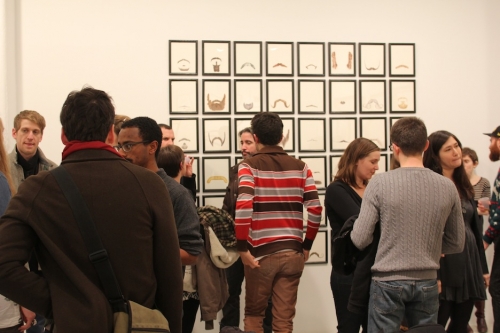
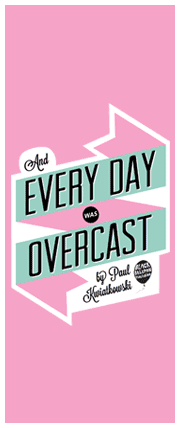



 A Black Balloon Publication ©
A Black Balloon Publication ©